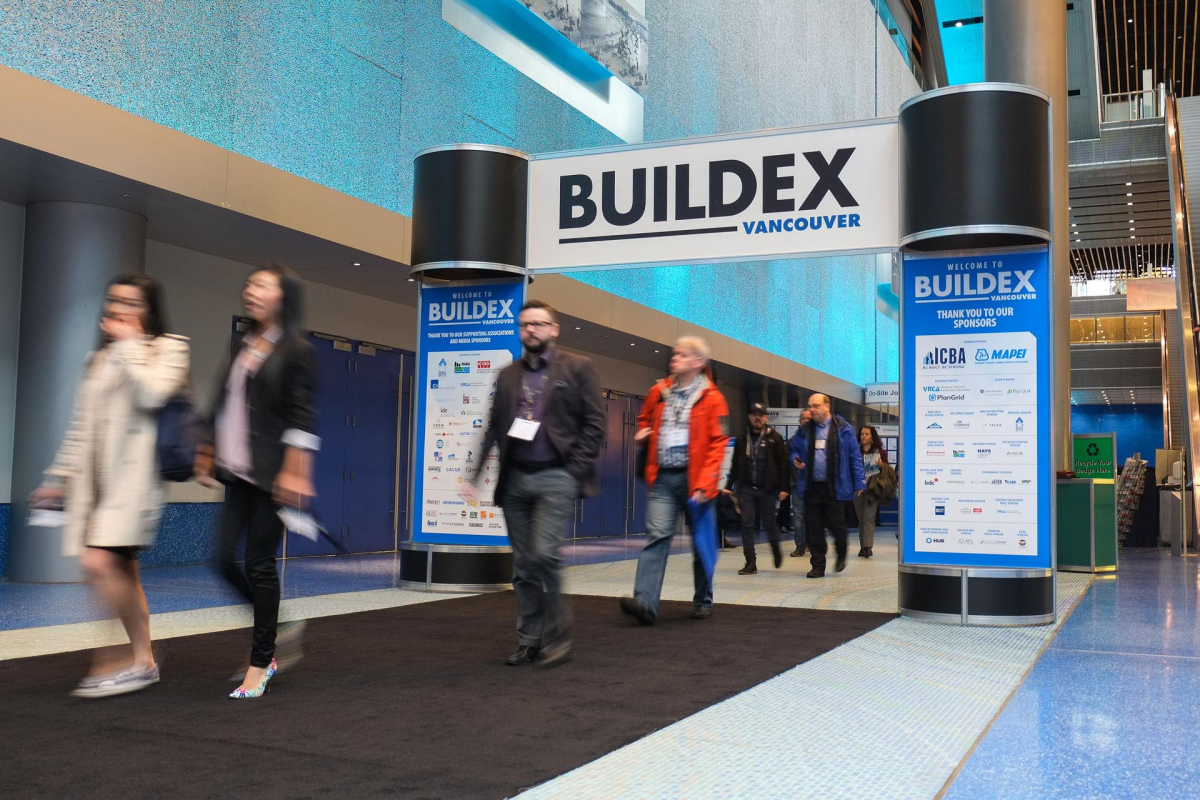Update: Scroll down to view the slide decks from the sessions.
Tom-Pierre Frappé-Sénéclauze, director of the Buildings and Urban Solutions Program at the Pembina Institute, was a presenter for two sessions on Day 1 of BUILDEX Vancouver 2018.
Wednesday, Feb. 14 • 8:30am–9:30am • ROOM 216
W06 – A Comprehensive Energy Retrofit Strategy for B.C. – Upcoming Policies & Business Opportunities
[Urban & Community Planning; Building Code & Envelope Solutions; Building Performance, Energy Efficiency & Environment; Health & Wellness; New Products, Technologies, Innovations & Materials; Project Planning, Management & Best Practices; Business & Strategic Planning]
[BOMI 1.0 CPD • 1.0 HSW-Sustainability IDCEC Approved • AIBC 1 Core LU • 1 CPD BC Housing Recognized]
A Comprehensive Energy Retrofit Strategy for B.C. from Pembina Institute
Upgrading our buildings to reduce waste and emissions seems a no-brainer - it creates jobs, improves health, and protects us from climate change. Yet, the business case for deep energy retrofits is still hard to pencil in. If the new government is serious about decarbonizing the building stock by 2050, how would industry go about this? What investments are required? What innovative models could reduce costs? And what new business opportunities would that create?
This presentation will build upon the conversation started at the 2017 Net Zero Buildings Thought Leader Forum. The speaker will outline a comprehensive retrofit strategy for B.C., assessing the potential that the retrofit market in B.C. has, summarizing on the upcoming policies that will contribute to the advancement of the decarbonization of our buildings.
Speaker:
- Tom-Pierre Frappé-Sénéclauze, Senior Advisor, Pembina Institute
Wednesday, Feb. 14 • 12:00pm–1:30pm • ROOM 218/19
W25 – Implementing the B.C. Energy Step Code: Lessons Learned and Next Steps on the Path to Net-Zero New Construction
[Building Code & Envelope Solutions; Building Performance, Energy Efficiency & Environment; Project Planning, Management & Best Practices; Legal, Regulatory & Risk Management; Property Management; Business & Strategic Planning]
[BOMI 1.5 CPDs • 1.5 HSW-Building Code Hours IDCEC Approved • AIBC 1.5 Core LUs • 1.5 CPD BC Housing Recognized]
Implementing the B.C. Energy Step Code from Pembina Institute
The Climate Leadership Plan sets a target that every new building must be net-zero ready by 2032. The B.C. Energy Step Code, launched last summer, is intended to provide a framework and roadmap for how we will meet that goal. It creates predictable steps for builders and local governments to follow, allowing local governments to set new energy-efficiency requirements that are consistent across the province.
Six months after its release, what lessons have we learned from local governments and builders that have adopted the B.C. Energy Step Code? What comes next for provincial and local policies to encourage high performance construction? What tools and training are available for builders to be ready for the new code?
Speakers:
- Bob Deeks, President, RDC Fine Homes
- Tom-Pierre Frappé-Sénéclauze, Senior Advisor, Pembina Institute
- Robyn Wark, Team Lead, Sustainable Communities, BC Hydro
